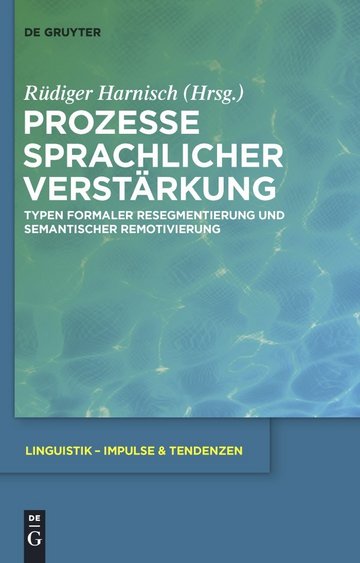Prozesse sprachlicher Verstärkung
Typen formaler Resegmentierung und semantischer Remotivierung

| Verlag | Walter de Gruyter GmbH & Co.KG |
|---|---|
| Erscheinungsjahr | 2010 |
| Seitenanzahl | 392 Seiten |
| ISBN | 9783110223866 |
| Format | |
| Kopierschutz | Wasserzeichen |
| Geräte | PC/MAC/eReader/Tablet |
| Preis | 129,95 EUR |
Processes in which linguistic entities are 'weakened' formally and in their meaning (e.g. Kien-Föhre > Kiefer) have been well researched, but 'strengthening processes' (e.g. Caribbean hamaca > folk-etymological explanation Hänge-matte) in which linguistic entities are first created have hardly been researched at all. The intention of this volume is to fill this gap by exploring both normal folk-etymologies and more subtle ones. The examples presented include: the interpretation in children's language of heiser as the comparative form of heis - i.e. heis-er, the literal interpretation of expressions (e.g. Gastarbeiter [guest workers] is considered wrong, because guests and work are mutually exclusive) and the attribution of meanings derived from world knowledge to words, which are not contained in the words' literal meaning (see the choices of Germany's annual 'Unwort' competition for the 'un-word' or 'No-No Word of the Year'). Pleonasms (such as Hai-Fisch instead of just Hai) round off the thematic spectrum.
Rüdiger Harnisch, Universität Passau.















